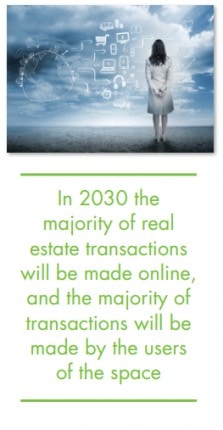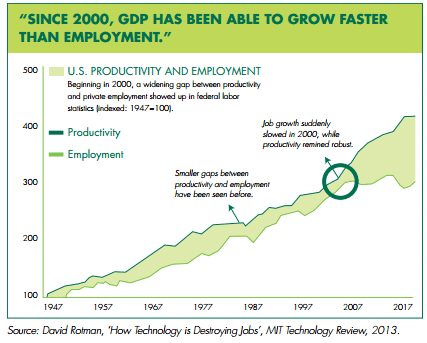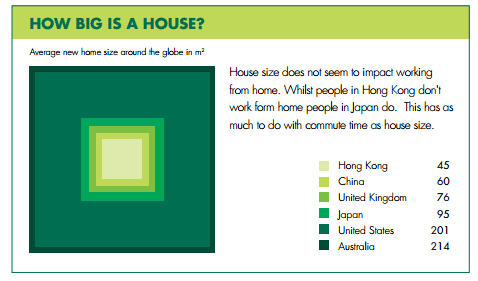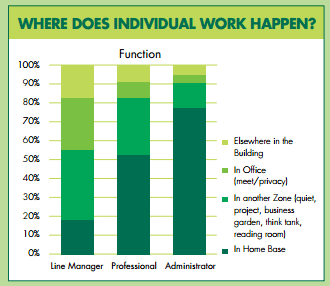
The report was crafted after interviewing 220 experts, business leaders and young people from Asia, Europe and North America. The report, which is not a public policy statement, suggests that perhaps 50% of workers today could be replaced by artificial intelligence or other technological advances.
Expected Impact on How Housing is Sold
By 2030, a majority of real estate transactions may be made online, the report states. Most of those will be made using real time marketplaces. Consider what this may imply for manufactured housing online marketers, many of whom don’t even show a price or provide other information necessary to make a transaction possible.
Given the coming dramatic changes, companies will need to re-learn how to obtain high performance from employees and contractors, opined Peter Andrew, CBRE Asia Pacific Director of Workplace Strategy.
70 Experts on Top 10 factors for competitive business advantages in 2030
Attraction and retention of key/top talent, Innovation (thinking outside the box) and
Adaptability to changing circumstances are the top 3 of the ten items the study cites as factors that will give businesses a competitive advantages by the year 2030, according to research including 70 leaders and experts. The chart of all ten factors is below.
Technology is “destroying jobs”
Since 2000, Gross Domestic Product (GDP) is growing faster than job creation, as the chart below reflects.
Quoting the study, “The Oxford Martin School suggests artificial intelligence will progress in two stages “First, computers will start replacing people in especially vulnerable fields like transportation/logistics, production labour, and administrative support. Jobs in services, sales, and construction may also be lost.” which continued:
“Interview participant Train Luo observes “the current knowledge workers will have to turn themselves into more creative workers to be able to think of how to best use and evaluate the information, and relate this correctly to what the client needs.“ The study notes some of these trends are already starting in places like Hong Kong.
Global house sizes?
While Tiny Houses are not mentioned in the report, the sizes of housing in Asian nations makes one think of that micro-trend in housing gaining popularity in the U.S. and Canada.
The following chart reflects the size of homes in square meters – which is equal to 10.7639 square feet. Single sectional manufactured homes certainly would seem large in some parts of the world compared to the sizes shown in the following graphic.
Where does Work Happen?
A 2010 Credit Suise study referenced by the CBRE/Genesis report shows ‘where work happens,’ as reflected in the next chart.
Noting the proportion of work being done at home is rising – factory builders, developers and home retailers who plan with this in mind could be ahead of the curve.
Indeed, a number of factory builders are already providing workspace/computer areas in their models.
Monitoring such trends as they evolve could place some builders at an advantage over others.
As many MHProNews readers know, CBRE has a division with significant involvement in manufactured housing land lease communities, aka ‘mobile home parks.’
While many questions that come to mind from reading the research go unanswered, the report provides interesting insights and projections worth considering. One of those take-aways stated or suggested that a workforce that is constantly reading and learning, with managers and owners willing to evolve.
The entire 59 page report is available at this link as a free download. ##
(Image credits: CBRE/Genesis and Shutterstock)




